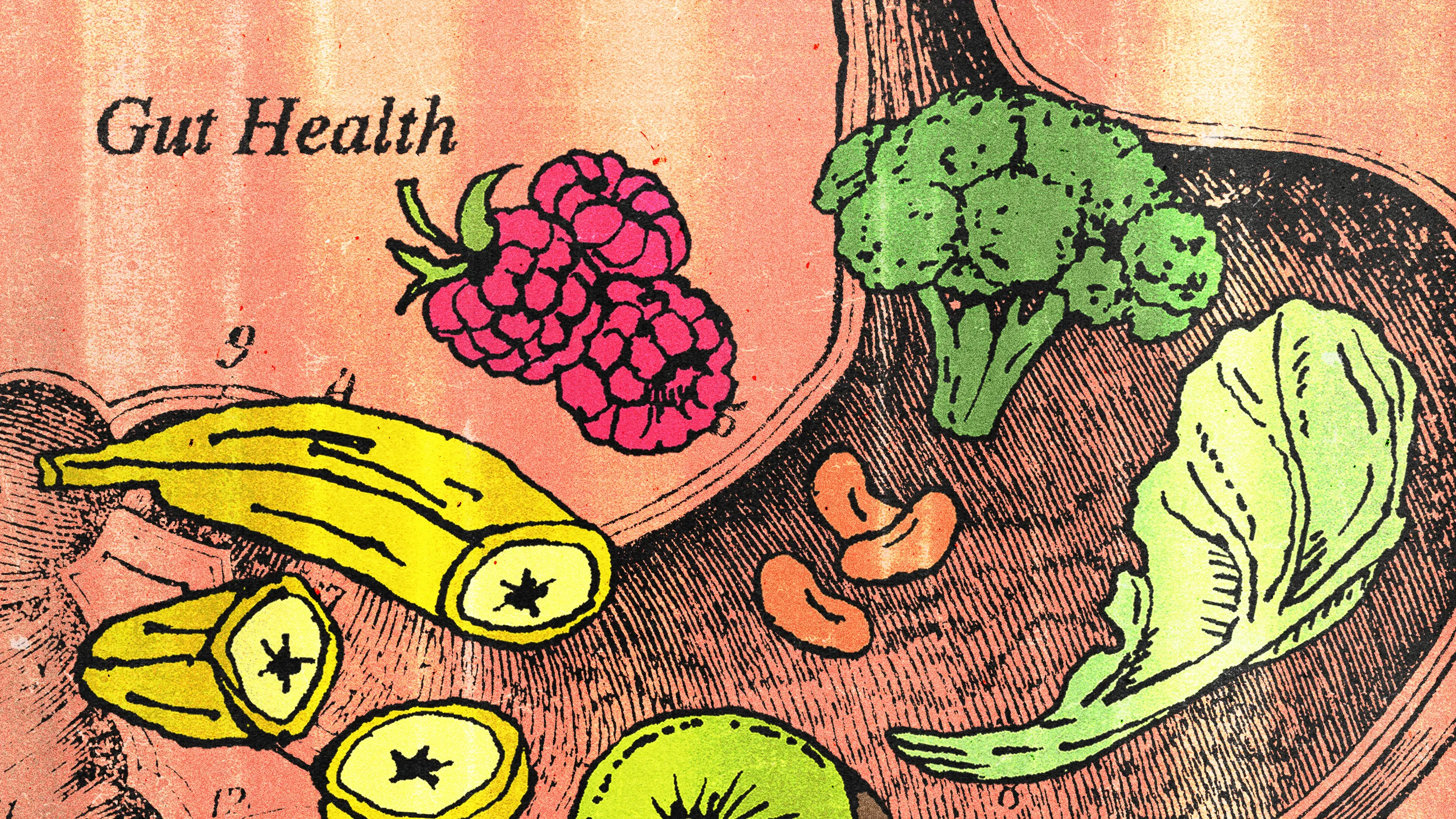Copyright gq

When your gut is healthy, the rest will follow. Understanding what the best foods for gut health are has become an essential form of modern self-care. Take it from Emily English, a nutritionist and founder of the gut health supplement Epetõme. “What you eat is the biggest day-to-day influence on your gut microbiome,” English says. “If you’re eating a diet rich in plants and a mix of fermented foods, you’re feeding the right bacteria. If your diet’s low in fiber and high in ultra-processed foods, you’re doing the opposite.” In short, some foods are more gut-nurturing than others. These are 11 of the best foods for gut health, handpicked by experts who know how to keep their microbiome in check. Why is gut health important? Your gut can influence everything from how well you sleep to how frequent your bathroom breaks are. “Your gut is basically the control center for so much more than digestion,” English says. “It’s where you break down food, absorb nutrients, and it’s home to about 70% of your immune system. The trillions of bacteria living there help keep inflammation in check, support your hormones, and even influence your mood.” An unhappy gut manifests through the usual suspects: bloating and constipation, but Rachel Gargano, chief registered dietitian at the supplement company Live it Up, says that, “additional symptoms include unintentional weight changes, mood changes, sleep disturbances, skin conditions like psoriasis, or food intolerances.” While these symptoms could have other root causes, fueling your gut with the right stuff is always a pragmatic first step. The best food types for gut health Building a gut-friendly diet hinges on two essentials: understanding the role of different food groups and keeping variety on your plate. In terms of said groups, English advises starting with high-fiber plant foods such as vegetables, legumes, nuts, seeds and whole grains. “They are what your gut bacteria feed on,” she says. Then start introducing “fermented foods like kefir, kimchi, sauerkraut, and live yogurt that bring in live culture that can help with diversity.” Next in line? “Polyphenol-rich foods such as berries, olive oil, herbs and spices which your bacteria also use in a way that benefits you,” adds English. And mixing things up is key. “Different bacteria eat different things, so the more variety you give them, the more diverse your microbiome will be. I always say to aim for 30 different plant foods a week.” Those who suffer with IBS, intolerance, or active inflammation should remember that “jumping in with big portions of high-fiber or fermented foods can backfire and make symptoms worse,” English says. “It’s better to go slowly and build up.” Prebiotics vs probiotics: What’s the difference? Knowing the scoop on these two will come in handy when figuring out what’s best to eat. Indeed, they both support your gut, but go about it in different ways. Prebiotic foods, as explained by Dr. Wuraola Adeyemo, GP and founder of the UK supplement company Seazenal, “contain live beneficial microorganisms that can help maintain or restore a healthy gut microbiome.” Probiotics, in contrast, “are the types of dietary fiber or plant compounds that feed the beneficial bacteria already living in your gut.” Simply put, probiotics are the good bacteria and prebiotics are the food for the good bacteria. Both yield their own benefits in building our gut microbiome, but Gargano emphasizes that probiotics may be harder to get from foods alone, and the benefits are much more subtle. Which is why doctors might sometimes encourage their patients to consume probiotics supplements after taking antibiotics. “We simply can’t get enough [from food] to have the impact your gut may need if it’s out of balance.” The best foods for gut health are… Rolled Oats “Oats are packed with several gut-benefiting compounds, including beta-glucan, a type of prebiotic fiber that feeds our good gut bacteria,” Gargano says. Her top tip is to let your oats cool before eating them. “This allows them to form resistant starch which has many benefits for our gut”. Dr. Adeyemo suggests opting for “steel-cut or rolled oats for lower glycaemic index which provide sustained energy without sharp sugar spikes”. All greens are undeniably good for your gut (as mentioned, diversity is key). For Dr. Sammie Gill, a specialist gastroenterology dietitian, broccoli tops them all, given its belonging to the cruciferous vegetable group which “contains distinctive sulphur-containing plant chemicals called glucosinolates.” These are known for their anti-inflammatory properties. She adds that “studies have found broccoli has potential cancer-preventive effects.” Baked beans Good news for all those students on a budget: “Baked beans are packed with fiber, with around 8g per half can,” Dr. Gill says. “One type of fibrer in baked beans is resistant starch which is a type of fermentable fiber that acts as ‘food’ for your gut microbiome,” she adds. Plus, they are rich in “plant chemicals called polyphenols which play a role in modulating immune function and dampening inflammation.” Side note: All beans and legumes are great for your gut health—kidney beans, lentils, chickpeas, peanuts—your pick. “Not only are they high in prebiotic fiber and resistant starch, they are also rich sources of antioxidants,” Gargano says. “Bananas feed your gut bacteria, with the added benefit of being soothing for the digestive system and helping support regular bowel movements, especially useful if you’re prone to constipation,” says Dr. Gill, adding that the brownness affects its specific benefits. “Slightly underripe bananas have more prebiotic benefit, but ripe bananas are better tolerated for those with constipation.” “Kiwi fruit is well known for its effects on constipation,” Dr. Gill says, explaining that “the fruit’s high-water holding capacity can help bulk out stool” and “improve gut mobility due to the action of the enzyme called actinidin.” What’s more, “two skin-on kiwis contain around 6g of fibre and nearly 200mg of vitamin C (up to three times the content of an orange).” Vitamin C is believed to support gut health, though there's limited research to support that claim. Raspberries Raspberries are the highest-fiber fruit, English says. “With around 8g per cup, [raspberries contain] mostly soluble fiber that feeds beneficial bacteria and supports healthy digestion. They’re also rich in polyphenols, which your gut turns into anti-inflammatory compounds.” Oily fish contain essential omega-3s, which “can reshape gut microbiome composition and function,” Dr Gill says. “What’s more, regularly eating fish is linked with a lower risk of cognitive decline via the gut-brain axis—the two-way communication between the gut and the brain.” “Chia seeds are especially high in fiber, providing around 10g per tablespoon which equates to one third of your daily fiber needs (30g a day),” Dr. Gill says. “They are also a rich source of alphalinolenic acid (ALA), an essential plant-based omega-3 and supply an abundance of polyphenols.” Given their capacity to absorb water, “the fiber part of chia seeds can hold around 15 times their weight, so it’s thought that they may have a laxative effect.” Yogurt (with live cultures) “Yogurt is a fermented food, meaning specific bacteria were added to produce its specific flavor and texture,” Gargano says. However, not all yogurts are made with probiotics. Her tip is to look for the phrase ‘contains live and active cultures’ on the label, and you’re golden. Kefir is also part of the fermented foods group which introduces “beneficial bacteria that can help restore microbial diversity in the gut.” For the best results, English suggests looking for it “in the fridge aisle, with no added sugar, and not heat-treated, so the bacteria are still alive.” Although unique in the sensory department, kimchi is a wonderful addition to your gut health repertoire. Dr. Adeyemo says that, like other fermented vegetables, kimchi “contains natural probiotics which can help increase the variety of good bacteria in your gut and support healthy digestion.” What’s the deal with gut health supplements? It's always best to try and fuel your body with whole foods, but a well-chosen supplement can occasionally support your gut health. “If your diet is limited, you travel a lot, you’re under stress, or you’ve had an illness that’s knocked your gut out of balance, the right supplement can help bridge the gap,” English says. As mentioned, the difference between prebiotics and probiotics is important here. When choosing supplements, Dr. Adeyemo shares that “probiotics may help maintain microbial diversity, especially after antibiotics, illness or disrupted routines,” while prebiotics are “helpful in nourishing the good bacteria already in the gut”. Research shows that synbiotics, which blend the two, “tend to work better than probiotics alone at supporting a balanced microbiome”. Be sure to speak to your doctor before taking any supplements, especially if you have pre-existing troubles with your immune system. This story originally appeared in British GQ.



